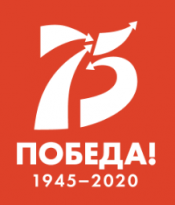
Marking the 75th anniversary of the Great Victory. The Presidential Library handed over wartime letters to the Victory website
More than 120 letters from the archive of the Leningrad family Harpf, written during the siege of Leningrad, were handed over by the Presidential Library for the publication on the official website of the celebration of the 75th anniversary of Victory in the Great Patriotic War MAY9.RU.
The letters are presented as part of one of the sections of the official information resource for the celebration of the 75th anniversary of the Victory - the patriotic project “Letters from the Front”. This is a unique folk archive created to preserve the memory of the war. The letters from the front reflected many things: about the war, about the soldier's life, about military decorations; they shared feelings and experiences, cherished dreams.
The letters of the Harpf family members handed over by the Presidential Library were digitized as part of the campaign organized by the institution in November 2018 on the eve of the 75th anniversary of the complete liberation of Leningrad from the Nazi siege, together with Radio Rossiya, the Petersburg Diary and the City Student Press Center St. Petersburg. The goal of a large-scale project dedicated to preserving the historical memory of the Leningrad blockade of 1941-1944 was to collect, scan and present to the general public documents, letters, diaries, photographs previously stored only in the personal family archives of Leningrad survivors of the blockade. More than 200 people responded to the call to share testimonies about that terrible time, and transferred over 4,000 documents to the Presidential Library.
During the project, more than 800 letters were digitized, including 125 letters transmitted by the resident of the besieged Leningrad Vanda Iosifovna Harpf (Iszhakina) (born in 1925). Most of them were written by her mother, Adele Mikhailovna Harpf. The rest – by father, Joseph Lukic Harpf, and brother Stanislav.
All the letters are addressed to one person - the second brother of Wanda, Michael Harpf. Shortly before the war, he left Leningrad on tour with a jazz orchestra. The family remaining in the city, and, of course, the mother, wrote to him almost daily. Many letters show traces of military censorship: paragraphs or entire pages are painted over or cut out. Particularly difficult was the head of the family, Joseph Lukic: “Our daddy is getting weaker every day. Right in front of his eyes... he looks very deplorable” (July 20, 1941); “Dad is sick. Weakness, malaise, pain in the stomach” (July 31, 1941). These days, Leningraders did not even guess what severe trials await them: “Now we live still quietly... there’s not even any alarm. But what will happen next is obscured by obscurity” (August 30, 1941). Throughout the fall, the situation worsened: “You really worry terribly for us. And I must admit that there is something to worry about. Yesterday, shells from long-range guns exploded in the streets” (September 14, 1941); “Milk is nowhere to be seen, only for the exchange of bread, which everyone lacks” (October 25, 1941); “You truly know how hard it is to eat. It is necessary to survive, but only strong natures will survive, physically - no matter how brave, the exhaustion of the whole body is affected, and here frosts are approaching ”(November 8, 1941). Hunger greatly crippled the health of Joseph Lukic. On December 30, 1941, a short telegram was sent to Novosibirsk, where Mikhail was in those days: “Today, on the night of the thirtieth, my daddy heartbroken mother Stas Wanda died quietly”. Having survived the ordeals, having lost a father, the family was evacuated from Leningrad in the summer of 1942.
Numerous materials devoted to the Great Patriotic War are presented in the large-scale collection of the Presidential Library “Memory of the Great Victory”. It includes official documents, photo and newsreels, newspapers, books, propaganda publications, collections of articles, biographies, testimonies of participants in combat battles and rear workers, their personal documents, images of military and labor awards, monuments and memorial complexes. The collection has been formed since 2010 and contains more than 24 thousand depository items and is constantly updated.

